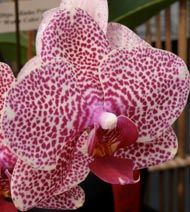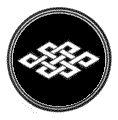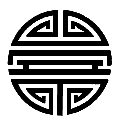International Center for NaturoBioHolistic
Health and Medicine:

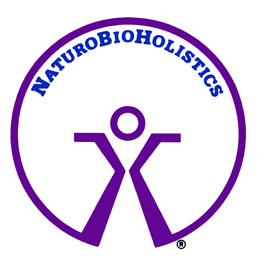
ICNHM was founded to educate professionals in a new healing system. It is time that we broaden the approach to disease resistance and healing beyond the current modern medical approach. Modern medicine is excellent in emergency treatment and acute care. Modern medicine is also expert at diagnosis with laboratory testing and imaging. ICNHM was founded to provide another level of care that includes primary prevention and gentler treatment options.
ICNHM doctors are trained to refer to medical doctors and hospitals when acute and life-threatening situations arise. Modern medicine may treat diseases after symptoms appear. This may be decades after the causes of the diseases start. ICNHM doctors are taught to reduce risk of illness.
ICNHM doctors teach patients how to avoid diseases before they develop. Many common diseases, such as cardiovascular disease, diabetes, and Alzheimer’s disease, have roots in nutritional deficiencies and low levels of fitness. Nutritional excesses may also play a role in the early development of these and other diseases. ICNHM doctors are trained with hundreds of classroom hours in nutrition and hundreds of classroom hours in exercise and fitness. Modern medical education does not emphasize disease-risk prevention training.
ICNHM doctors are trained in lifestyle diagnosis. This includes diagnosis and correction of diet, fitness levels, stress, and exposure to environmental pollutants. ICNHM nutritional training goes beyond the normal training of a registered dietitian. While dietitians look principally at nutrient deficiencies, ICNHM doctors are trained to also look for excesses of certain nutrients and to evaluate contamination of food. This is accomplished with a diet record. Diet records are analyzed for nutrients, and food substitutions are suggested for correction of both deficiencies and excesses. Fitness is another necessary component of disease risk reduction. Exercise records are monitored to ensure that many different types of fitness are achieved. Patients are trained in strengthening, aerobics, flexibility, and enhanced blood flow techniques.
Stress can have significant effects on the immune, digestive, nervous, and muscular systems. ICNHM doctors are taught how to identify sources of stress and taught effective stress relief and relaxation procedures. Stress records identify sources of stress so that a program can be designed to reduce stressors, change reactions to stressors, and develop relaxation techniques. ICNHM doctors are needed because modern medicine may not incorporate techniques to raise optimum health and improve disease resistance.
ICNHM doctors are sworn to “first of all, do no harm.” Treatment-caused illness from the techniques of modern medicine is one of the top causes of death in the United States. ICNHM doctors do not use potentially dangerous techniques, such as drugs and surgery. They are taught to support the healing power of nature, rather than to overpower the natural balances in the body. Instead of using powerful drugs, surgery, and radiation techniques, gentler approaches, such as hydrotherapy, botanical therapy, and neuromuscular therapy are part of the curriculum. Diet therapies, not often used in modern medicine, are implemented for both risk reduction and to resolve health problems. Because of the powerful influence of the mind on physical health, many different approaches to the interaction of mind and body are considered. Expanding on relatively new Western medical science, techniques and perspectives from the Ayurvedic, Chinese, humoral, and other systems are part of the ICNHM training.
ICNHM doctors are trained in botanical medicine. Plants are and have been used as medicine in many parts of the world and throughout history. Plant medicines, although not used in modern American medicine, can be effective and are often gentler than drugs when used with chronic health problems. ICNHM doctors are trained in the use of hundreds of botanical therapies. They are trained that sometimes a gentle herb tea, such as chamomile, might be a healthier alternative to harsher drugs, such as Prozac(TM) for nervous problems. The fast action of drugs is often needed in a hospital setting, however, the gentler herbs may be better for long-term use, such as during convalescence. ICNHM doctors are introduced to the systems of herb use and diagnosis in different cultures.
ICNHM doctors receive advanced training in neuromuscular therapy. They are also trained in structural therapies designed to relieve postural stresses and enhance movement. Touch therapies are excellent for understanding the physical state of the patient, for relaxation, and to relieve pain from injuries. The effects of posture, ergodynamics, and movement on musculoskeletal problems are part of the curriculum. ICNHM doctors are needed because modern medical doctors are not trained in the manipulation of superficial and deeper layers of muscle and connective tissue. Hydrotherapies are often used in conjunction with manipulation therapies. ICNHM doctors are trained in the many uses of water, from cold water to steam, to treat health conditions. Modern medicine does use ice packs for inflammatory conditions. However, there are many other hydrotherapies that have powerful effects. For example, a hot bath may be more effective in inducing sleep than drugs, and without the undesirable side effects.
Modern medicine can give the same drugs to people regardless of their individual differences. ICNHM doctors are taught how to tailor treatment programs to the individual based upon differences in metabolism, vascular structure, digestive structure and function, nervous tension, and other individual characteristics. ICNHM doctors are taught listening skills because each patient needs to discuss their own health history in detail. . Modern medicine advocates weight management. ICNHM doctors are taught techniques to achieve optimal weight including overcoming habit patterns, understanding addictions, and keeping agreements with oneself.
ICNHM doctors are taught many techniques to extend healthy lifespan including avoiding pollutants in food, optimum nutrition, continuing fitness, and a positive mental attitude. Medical doctors take charge of the patient and tell them what to do. ICNHM doctors teach the patient how to care for themselves. The original meaning of the word “doctor” means teacher. Each patient is taught the road to better health and encouraged to begin the changes needed to achieve disease resistance and recovery from illness. It is up to the patient and their family to implement these changes to the extent that they are willing and able.

The International Center for NaturoBioHolistic Health and Medicine (ICNHM) taught European naturopathy in America. With challenging admission requirements, enrollment into this exclusive school was limited. Extensive educational programs resulted in the granting of fully accredited degrees in naturopathic medicine and doctorates in holistic health. The college was situated in Minnesota.
Before the first-year, in-residence classes started, new students were required to read dozens of books to introduce them to the vast subject area about to be covered. Upon arrival, students were taught speed reading and learning techniques to assist with the extensive curriculum.
The ICNHM campus was situated lakeside on an extensive estate. Students and faculty stayed in the many dorms and buildings. Amenities included a sauna, canoes, a large fitness center, health clinic, and meal hall. The college office building included the bookstore and a collection of research studies.
The library building housed an impressive collection of books, including many rare and first edition books. A large part of the library was bequeathed from Benedict Lust, the father of John Lust. He was often called the Father of Naturopathy in America. The International Center for Naturobioholistic Health and Medicine taught European naturopathy where nature does the healing—injections and surgery were not part of the curriculum.

Class information was organized into a set of custom binders by each student.
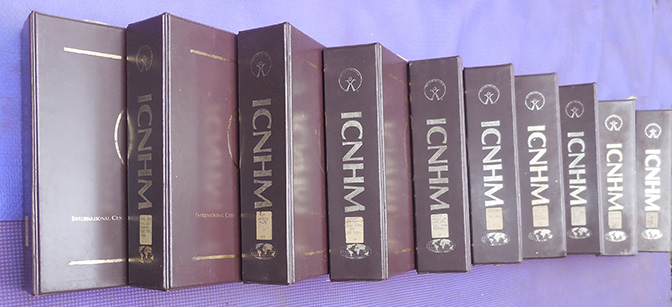

Students were in class from eight in the morning until six in the evening, with at least one evening class. Students were allowed up to an hour a day to use the fully-equipped gymnasium that was part of the training.
Visiting faculty supplemented the resident faculty. Medical doctors came to ICNHM to lecture on childbirth and pathology. Experts in anatomy and physiology came to teach understanding of the structure and function of the mechanical aspects of the human body.
ICNHM presented a fitness program for those who sought exceptional fitness. Fitness is an important factor in achieving optimum health. Part of the training was to achieve physical fitness. Fitness training was also designed to assist with the mental gymnastics of accelerated and intensive learning. Fitness courses taught a balanced perspective on the various types of fitness activities. Strengthening regimes from Olympic athletes were presented. Dr. Martin, inventor of gravity boots and inversion machines came and lectured on gravity guidance. Rebounding was introduced as a natural remedy for blood stagnation and the circulation of lymph fluid. Various aerobic fitness regimes were detailed. Exercise physiology was presented.
Students were served gourmet vegetarian meals. Extensive classes were held on nutritional basics, micronutrition, natural diet, superfoods, and supplementation. Over 390 classroom hours of nutrition were required at ICNHM. Dietary analysis was taught.
ICNHM had a large curriculum on rejuvenation. This included hands-on trials of techniques, such as facial packs with clay or herbs. Students were introduced to the therapies and techniques used in health clinics around the world.
The courses on the causes of stress and how to deal with it were extensive. Dr. Cooper based some of the course material at ICNHM on his treatment of many busy executives on how to reduce stress and relax. Autogenic training and progressive relaxation were taught by masters in the field.
The four-year in-residence education at ICNHM was set up to allow some continuation of life outside of school. The fall semester consisted of 15 weeks of intensive education. There was a break to allow students to attend to their families and businesses in the winter. During this time, students had extensive reading lists and multiple assignments. The reading load was three books a week with reports and tests when spring semester started. Spring semester at ICNHM consisted of intensive seminars for 15 weeks. Summer break also had extensive reading assignments. The classroom hours consisted of 945 hours per year in regular sessions plus 150 hours of night classes. 4380 total classroom hours were required to qualify for the doctor of naturopathy degree. Independent study contributed a total of 254 of these hours over the four years.
At the end of the first year, students took examinations to qualify as Certified Natural Health Practitioners. By the second year students had completed the 1800-hour course in massage and hydrotherapy conducted by the Florida School of Massage and Hydrotherapy onsite. Neuromuscular therapy was an important part of the body therapies taught. By year four, students were recipients of the one of the best educations in natural medicine offered in the world.
Board examinations for the naturopathic doctor degree at ICNHM lasted for eight hours on each of three successive days. Students also had to pass another set of tests on their physical condition. Passing students were granted a degree in naturopathic medicine. Dedicated students went on to prepare a doctoral thesis. Doctor of Science degrees were awarded upon successful completion of a thesis. |

Curriculum:
International Center for NaturoBioHolistic Health & Medicine
Four-Year Naturopathic College Curriculum
Doctor of naturopathy total hours = 4380
YEAR ONE
Total number of year one units: 1095
COURSE DESCRIPTION NUMBER OF UNITS
(1 Unit= 50 Min. Class)
History of Natural Healing I 12 Units
Roots of Disease/Principles of Natural Living
Natural Healing and Optimum Health 8 Units
The Four Foundations of Optimum Health
Holistic Wellness: A Full-Spectrum Approach 8 Units
Speed Learning 8 Units
How to read research studies
Health Sciences & Terminology 20 Units
Common Illnesses and Diseases 16 Units
Anatomy & Physiology 112 Units
General Evaluation Procedures 12 Units
Bioindividuality I 12 Units
Listening Skills 6 Units
Neovitology I 8 Units
Nutritional Science I 16 Units
Exercise Science I 16 Units
Biomechanics of Structure, Posture, and Movement I 16 Units
Emergency Life Support Skills I 12 Units
Cardiopulmonary Resuscitation Certification 16 Units
Natural Diet and Nutrition I, II, III 96 Units
Trauma-Free Exercise I, II 96 Units
Natural Revitalization Processes I, II 12 Units
Stress Control and Relaxation Methods I, II 48 Units
Medical Plant Science I, II 22 Units
Weight Control I, II 22 Units
Optimum Patterns of Posture and Movement I, II 22 Units
Optimum Sleep and Rest I, II 22 Units
Natural Pressure Therapies Introduction 8 Units
Hydrotherapies and Heliotherapies Introduction 8 Units
Living Environments I 16 Units
Light and Health I 8 Units
Colors and Health I 4 Units
Sounds, Music, and Health I 4 Units
Biopolarities and Life Energy Considerations I 8 Units
Mind/Body Integration I, II 48 Units
Psychology I 8 Units
Ecology Factors I 12 Units
Spiritual Health and Self-Realization I 24 Units
Optimum Health Longevity I 20 Units
Life Transitions I 8 Units
Health Professions: Referral Considerations 12 Units
Professional Communication Skills I, II 24 Units
Holistic Health Program Design & Personalization I 48 Units
Holistic Health Education I, II 8 Units
Comparatives in Natural Health Therapies 16 Units
Professional Networking 6 Units
Professional Ethics I, II 8 Units
Jurisprudence I, II 8 Units
Business and Office Procedures I 16 Units
The Successful Professional I 16 Units
Full-Spectrum Perspectives 6 Units
Independent Study 113 Hours
Review for First Year Comprehensive Exams 8 Units
982 classroom hours + 113 independent study hours = 1095 year one hours
MINIMUM PASSING GRADE=85%

YEAR TWO
Total number of year two units: 1095
COURSE DESCRIPTION NUMBER OF UNITS
(1 Unit= 50 Min. Class)
History of Natural Healing II 12 Units
Anatomy: Advanced Correlative-Neuomusculoskeletal 16 Units
Cellular Physiology II 4 Units
Physiology: Correlative- Neuromusculoskeletal 16 Units
Body Systems and Immunology 16 Units
General Evaluation Procedures III 16 Units
Neuromusculoskeletal tests 8 Units
Self-care and Wellness 4 Units
Bioindividuality 4 Units
Neovitology II 4 Units
Nutritional Science II 24 Units
Exercise Science 12 Units
Emergency Life Support Skills II 8 Units
Natural First Aid I 8 Units
Natural Diet and Nutrition IV, V 36 Units
Trauma-Free Exercise III 48 Units
Natural Revitalization Processes III 8 Units
Stress Control and Relaxation Methods II 32 Units
Botany/Plant Ecology I, II 12 Units
Medical Plant Science III, IV 28 Units
Homeopathy I: Introduction 8 Units
Weight Control III 12 Units
Optimum Patterns of Posture and Movement III 16 Units
Optimum Sleep and Rest III 8 Units
Natural Pressure Therapies II 4 Units
Clinical Massage Therapy I, II 228 Units
Clinical Massage Therapy Laws 8 Units
Neuromuscular Therapy 92 Units
Acupressure and Reflexology Therapies 24 Units
Natural Pressure Therapies General Clinical 24 Units
Preparation for Massage Therapy Certification 24 Units
Clinical Hydrotherapies 40 Units
Clinical Heliotherapies 20 Units
Thermotherapies 16 Units
Living Environments II 4 Units
Mind/Body Integration III 24 Units
Community Health Systems I, II 12 Units
Spiritual Health & Self-Realization II 12 Units
Optimum Health Longevity II 8 Units
Life Transitions II 8 Units
Professional Communication Skills III 16 Units
Holistic Health Program Design/Personalization II 36 Units
The Successful Professional III 8 Units
Full-Spectrum Perspectives 4 Units
Health and Wellness in the Future 8 Units
Structural Connective Tissue Anatomy & Physiology 8 Units
Neurophysiology Introduction 8 Units
General Evaluation Procedures IV 8 Units
Iridology II: Research Progress 12 Units
Postural Analysis 8 Units
Independent Study 53 Hours
1042 classroom hours + 53 independent study hours = 1095 year two hours
MINIMUM PASSING GRADE=85%

YEAR THREE
Total number of year three units: 1095
COURSE DESCRIPTION NUMBER OF UNITS
(1 Unit= 50 Min. Class)
Self-Care and Wellness II 18 Units
Bioindividuality III 6 Units
Nutritional Science III 20 Units
Exercise Science III 16 Units
Natural First Aid II 6 Units
Natural Diet and Nutrition VI 24 Units
Trauma-Free Exercise IV 36 Units
Natural Revitalization Process IV 8 Units
Stress Control and Relaxation Methods IV 36 Units
Botanical Materia Medica 112 Units
Natural Pressure Therapies III 32 Units
Structural Therapies 22 Units
Postural/Structural Integration I, II, III, IV 280 Units
Specific Kinesiology I, II 40 Units
Gravitational Exchange Therapies I, II 24 Units
Amphiarthrotic/Diarthrotic Articulation Therapies 24 Units
Synarthrotic Articulation Therapies 24 Units
Living Environment Factors III 16 Units
Acupuncture & Moxibustion Therapies 8 Units
Mind-Body Integration IV 40 Units
Psychology II 8 Units
Self-Actualization 8 Units
Psychosynthesis 8 Units
Transpersonal Psychology 8 Units
Ecology Factors II 14 Units
Community Health Systems III 48 Units
Spiritual Health & Self-Realization/Actualization III 24 Units
Mental Imagery and Visualization Skills 12 Units
Life Transitions III 24 Units
Holistic Health Program Design & Personalization III 40 Units
Business & Office Procedures II 6 Units
The Successful Professional III 6 Units
Independent Study 81 Hours
Research Techniques 8 Units
Thesis Selection 8 Units
1014 classroom hours + 81 independent study hours = 1095 year three hours
MINIMUM PASSING GRADE=85%

YEAR FOUR
Total number of year four units: 1095
COURSE DESCRIPTION NUMBER OF UNITS
(1 Unit= 50 Min. Class)
Anatomy & Physiology Correlatives 36 Units
Psychophysiology 16 Units
General Evaluation Procedures IV 32 Units
Self-Care and Wellness III 8 Units
Bioindividuality IV 8 Units
Natural Childbirth I, II 56 Units
Nutritional Science IV 72 Units
Exercise Science IV 8 Units
Emergency Life Support Skills IV 8 Units
Natural Diet & Nutrition VII 104 Units
Trauma-Free Exercise V 48 Units
Natural Revitalization Processes V 8 Units
Stress Control & Relaxation Methods V 36 Units
Clinical Biofeedback 24 Units
Medical Plant Science IV, V, VI 96 Units
Field Botany 44 Units
Weight Control V 12 Units
Optimum Patterns of Posture & Movement V 32 Units
Optimum Sleep & Rest IV 12 Units
Natural Pressure Therapies: Advanced Correlatives 80 Units
Living Environment Factors IV 12 Units
Mind-Body Integration V 16 Units
Ecology Factors III 12 Units
Community Health Systems IV 16 Units
Spiritual Health & Self-Realization IV 24 Units
The Family Environment 12 Units
Optimum Health Longevity IV 12 Units
Life Transitions IV 12 Units
Holistic Health Program Design IV 24 Units
Natural Therapeutics Comparatives 24 Units
Professional Networking II 32 Units
Jurisprudence III, IV 16 Units
Business & Office Procedures III 12 Units
The Successful Professional Practice IV 12 Units
Full-Spectrum Perspectives 32 Units
Independent Study 7 Hours
Program Review 64 Units
1088 classroom hours + 7 independent study hours = 1095 year four hours
MINIMUM PASSING GRADE=85%
Doctor of naturopathy total hours = 4380
|

